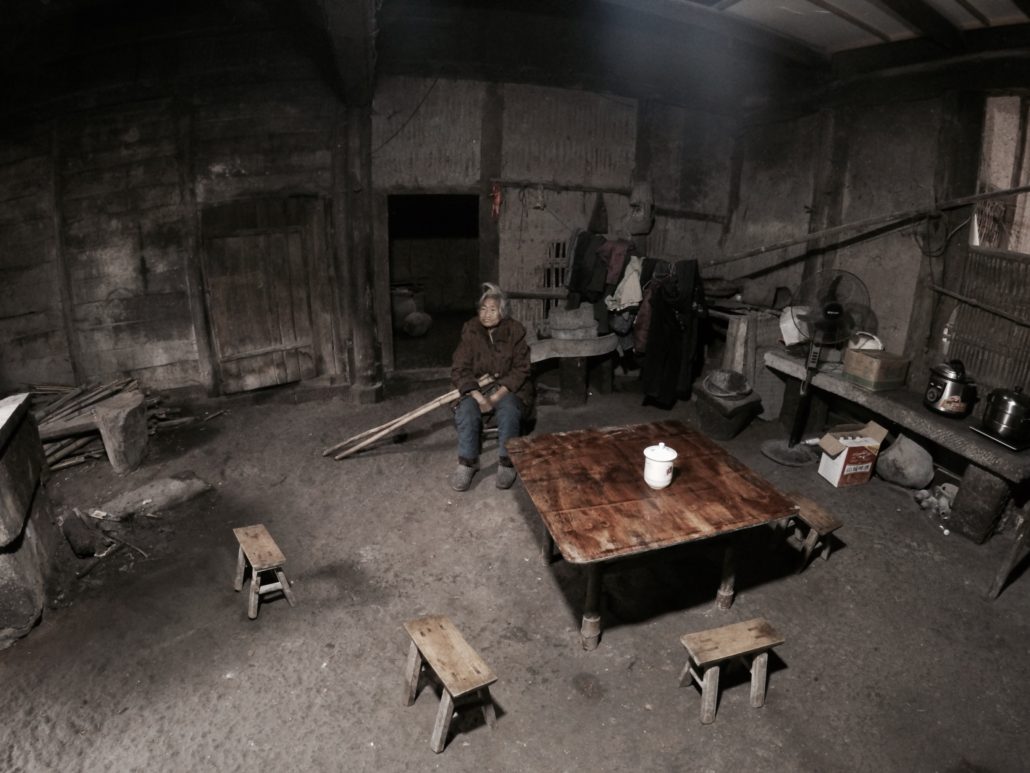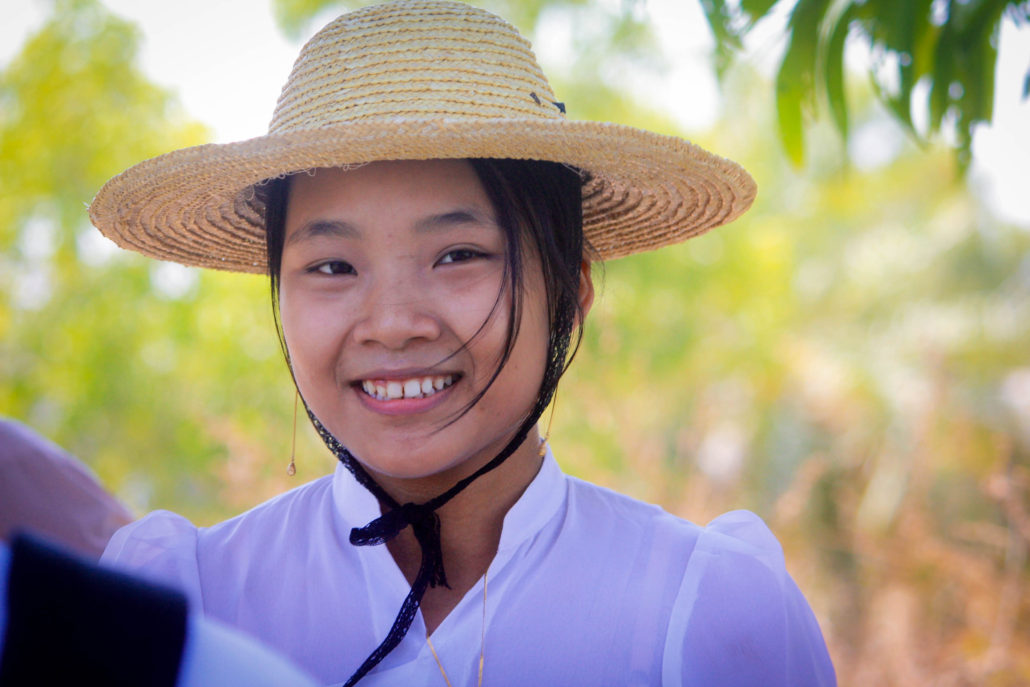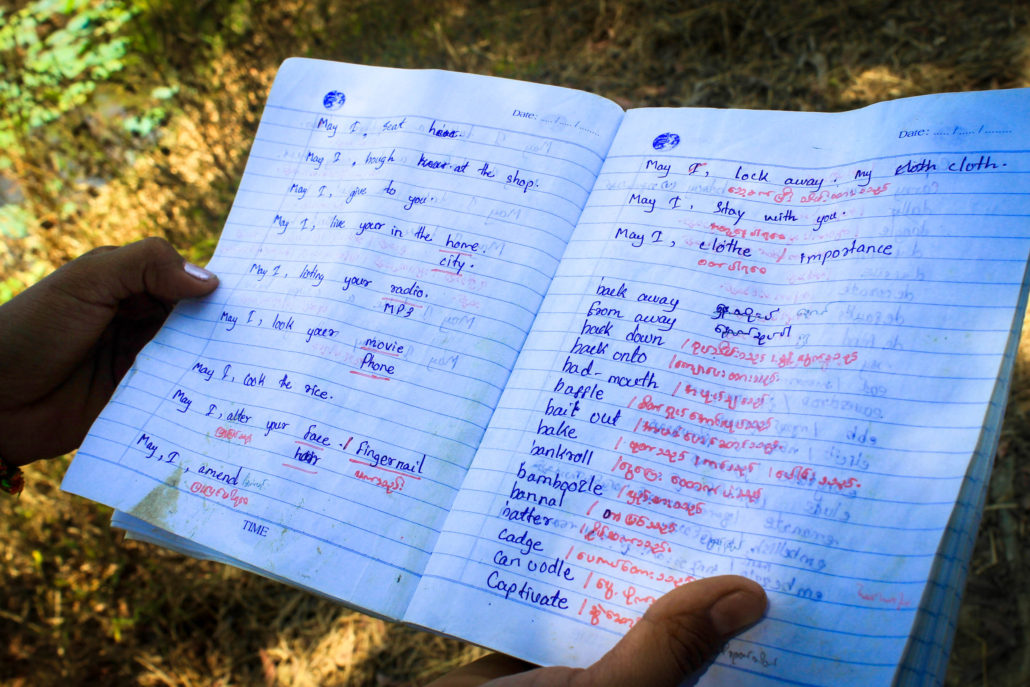Lien AID’s inaugural “Windows of Hope” roving VR exhibition helps staff of Expedia and other companies understand the region’s water challenges & development work
The Singapore NGO seeks the support of private sector organisations to bring clean water to Asia’s rural poor in Cambodia, Myanmar & China
Imagine having to collect rainwater every day, and spending at least 30 minutes treating it before you can even take a sip. More than 200 million people in Asia still lack access to clean water and sanitation, putting them at risk of early death, disease and entrenched poverty.

Children playing in flooded rice fields, Preaek Chrey commune, Cambodia. Ms. Sokha Sinoeun, principal of Preaek Chrey elementary school estimates that on average 5 students miss classes each month due to fever and diarrhoea.
With such a compelling need, Singapore non-government organisation (NGO) Lien AID has launched “Windows of Hope” – a virtual reality (VR) experience and roving exhibition on Asia’s need for clean water. Lien AID is bringing this immersive event right into the offices of companies and organisations in Singapore to give employees a unique chance to journey into Cambodia and Myanmar vicariously, and discover for themselves what life without clean water is like. Through the VR video and physical installations, they will learn about the impact of the region’s water challenges and how Lien AID works with local governments, rural communities and corporate supporters to offer relief and sustainable water access.
Deeper understanding of water challenges
Mr Koh Lian Hock, CEO of Lien AID said, “The best way for people to understand the devastating impact of widespread water challenges on rural communities is to travel there and see for themselves. However, not everyone is able to do this. But we can bring the experience to him or her through this immersive 360˚ experience. With this exhibition, we hope to bring people closer to our cause, and educate them on the urgent need for clean water in countries like Cambodia and Myanmar, and what they can do to make a difference.” Lien AID is seeking the support of corporates to adopt its water cause as part of their Corporate Social Responsibility (CSR) efforts, so there can be greater and more sustainable water access in rural communities across Asia.
Through the “Windows of Hope” VR exhibition, Lien AID hopes to raise $300,000 to help ten Myanmar villages improve their water supply and gain access to proper sanitation in schools and health centres.

A woman climbs down a rudimentary river quay made of bamboo, Kakayo village, Myanmar. Two hours away from the nearest town, Kakayo village has few amenities and villagers have to travel to the neighbouring village for health services.
Since November this year, the Windows of Hope VR exhibition has travelled to the offices of Credit Suisse and Allen & Gledhill, as well as to Expedia. In 2018, Lien AID will be bringing the roving exhibition to more offices, such as design and engineering consultancies AECOM and Arup.
Employees have gained greater awareness
Lien AID is the first water NGO in Singapore to tap on the power of VR and 360˚ video to bring urban executives and professionals closer to the heart of the water issue. Initial responses to the exhibition have been positive. Close to 50 Credit Suisse employees took part in Windows of Hope. Ms Laetitia Lienart, Vice President, APAC Corporate Citizenship, Credit Suisse said, “At Credit Suisse, employees are encouraged to support local communities by donating their time and skills to initiatives and projects run by partner non-for-profit organisations. We were very pleased to host Lien AID’s exhibition, which gave employees a unique opportunity to learn about water challenges in rural Asia through immersive technology.” She added, “We organise various charity events throughout the year to raise awareness of our staff about key social and environmental issues in Asia. We also provide financial grants to not-for-profit partners which provide underprivileged children and youth with access to quality education.”

Employees from Credit Suisse at the Windows of Hope exhibition.
Over 100 employees from the law firm, Allen & Gledhill, got a virtual taste of Cambodia’s water challenges. Mr Chan Hian Young, Partner at Allen & Gledhill, who helms the Pro Bono Programme at the firm on a full-time basis, says, “Lien AID has used a very interactive medium to engage us with sights and sounds to enhance our experience at the exhibition. This has given us a clearer picture of the situation in the rural villages. We saw that a lot of help is needed for these communities to access clean water and sanitation”. Allen & Gledhill, has been assisting Lien AID in setting up its project office in Myanmar.

An employee at Allen & Gledhill views the 360 video.
Expedia Singapore also played host to the exhibition on 1 December, where employees had a chance to explore the issue. Mr Jason Chuei, CSR lead at Expedia Asia Pacific said, “Under our global ‘Expedia Cares’ CSR programme, clean water and sanitation is one of our focuses in the region and for Singapore. The challenge for clean water is a key developmental need for many of Asia’s rural poor. It is also an issue close to Singapore. As a global travel and technology company, it is important to cultivate and encourage our employees to support community outreach programmes through volunteering efforts. It is rewarding to see the Expedia Cares programme providing a platform for our employees to achieve that through multiple initiatives that matter to our country and community.”

Cambodian ‘Waterpreneur’ & Lien AID at work
The VR video was shot in Preaek Chrey Village, Kandal Province in Cambodia. The villagers in the often-flooded rural area mostly rely on dirty river water or rainwater for drinking, cooking and washing. It is estimated that prior to Lien AID’s intervention, the villagers spent on average 25 to 40 minutes preparing water (collecting, filtering, boiling, etc.) before drinking it.

A woman scooping water from a rainwater harvesting jar, Cambodia. The earthen jars used to collect rainwater are not cleaned regularly and often contaminated with animal droppings and other pollutants.
The Community Water Enterprise (CWE) set up by Lien AID in Preaek Chrey village covers two of seven villages in Preaek Chrey commune. The main sources of drinking water for villagers prior to the implementation of the CWE programme are river water and rainwater. The other alternative source would be imported bottled water sold by a private company in Vietnam, which costs up to 3,000 Riel/bottle (USD 0.75). The CWE programme, Lien AID’s intervention, has enabled an estimated 3,624 villagers from 929 households and 2 villages to gain better and more affordable access to clean drinking water. Under the CWE programme, a water treatment and bottling plant is built in the commune. ‘Water entrepreneurs’ are selected from the local villages through a rigorous evaluation process. Water management committees comprising selected local government officials are also formed to regulate the provision of water services. Like the entrepreneurs, they are trained to operate and maintain water treatment and bottling plants, as well as taught basic business skills and how to manage water services.
In the decade since its inception, Lien AID has enabled clean water and sanitation access for more than 900,000 rural poor in Asia, across 6 countries (Thailand, Myanmar, Cambodia, Vietnam, Indonesia, China) in more than 2,800 villages, 270 schools and 50 healthcare centres.
Access to clean water has the power to transform lives. For every dollar invested in water, sanitation and hygiene, the World Health Organisation and United Nations Water Agency estimate that more than four times the benefits are delivered through savings in healthcare costs. Convenient water supply and sanitation services are also estimated to provide time-savings of 20 billion working days per year as well as an additional 320 million productive days gained due to improved health.[1]
Host the Windows of Hope exhibition in your office
Companies which would like to offer their employees a unique opportunity to experience immersive 360˚ technology and play a part in bringing clean water to rural communities in Asia can contact ruiyan.yong@lienaid.org for the roving exhibition to visit their offices.
[1] http://www.un.org/apps/news/story.asp?NewsID=49377#.Whauz1XXbDd






















































